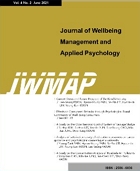- 권한신청
- E-ISSN2586-6036
- KCI
Proposal of Research Methodology Using The Measurement of Perception Difference
Abstract
The purpose of this study is to solve the problem of revision or abbreviation of questionnaires based on the previous studies suggested by many existing empirical studies. In addition, this study aims to provide the theoretical basis of the research method which has been variously approached since it presents the methodology that can directly measure the research object. For this purpose, this study proposed a more elaborate analysis method using the differences in perception of individuals who are interested in cognitive research. Specifically, the perception gap(D) can be used as an independent variable, a dependent variable, and a moderating variable. And this study suggested an effective research approach using the measurement of perception difference. The difference of perception suggested that it can be used as a measure to overcome the limitations of existing researches used it as independent variables or mediating variables that measure only one factor of expectation and performance or importance and satisfaction. In addition, it is highly likely that various analyzes on the perception differences, which are the result of measuring target factors for the same person, will be quite effective in the situation where follow-up of respondents is difficult. This study is expected to overcome various limitations reported by empirical studies such as scale utilization problem and follow-up survey difficulty. In future research, it was expected that the limitation of the factor derivation process in the research approach could be complemented by web crawling and text mining of big data analysis.
- keywords
- Perception, Perception Difference, Gap, Quantitative Analysis, Research methodology
- 다운로드 수
- 조회수
- 0KCI 피인용수
- 0WOS 피인용수














